REFLECTION
Beirut blast: ‘The sound of broken glass being swept up will forever reverberate in my ears’
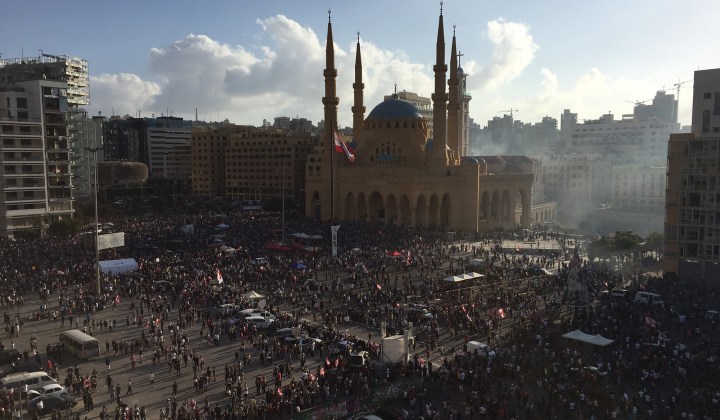
An explosion ripped through the city of Beirut just over a week ago, leaving more than 170 people dead and thousands injured. The blast unleashed protests and anger, with the cabinet resigning on Monday. Living in the shattered Lebanese capital, Nathalie Rosa Bucher recounts her experience of the blast and its aftermath.
Beirut is a harsh and tender city, with its omnipresent scars on the walls of the city. It has been destroyed seven times – most recently during the civil war (1975-1990) and the 2006 war. My home for the past over eight years, Beirut has whipped, inspired, drained, taught and nurtured me.
It has infused and sometimes nearly crushed me with its dynamic energy. For decades, it has drawn the most famous intellectual and artistic voices from Palestine, Syria, Iraq, Egypt and other parts of the region to her shores.
Beirut is known as “Mother of the World”:
“Rise from under the rubble
Like a flower of Almond in April
Get over your sorrow
Since revolution grows in the wounds of grief (…)”.
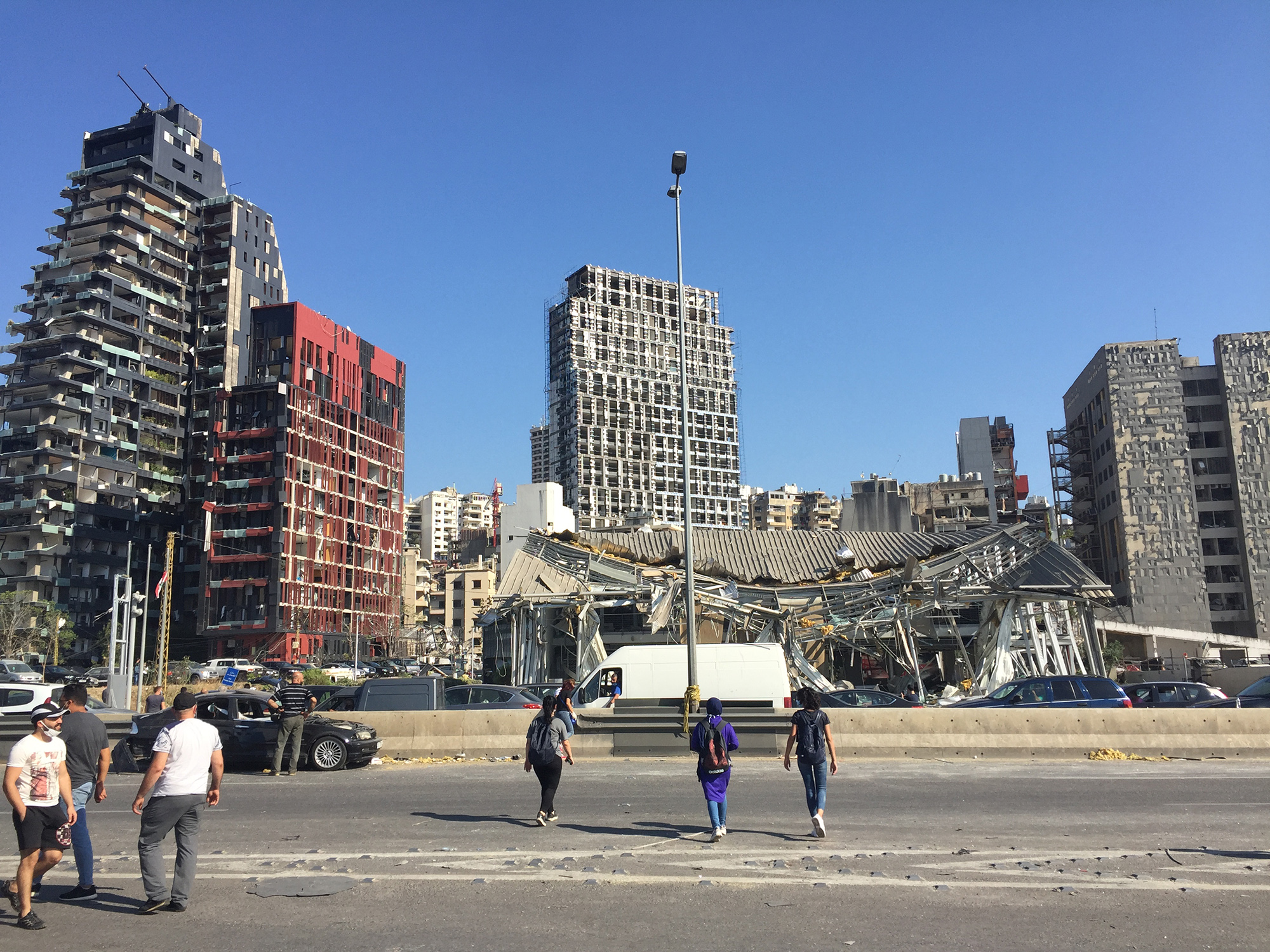
Beirut’s Mar Mikhael neighbourhood as seen from near the port where the explosion occurred. 5 August 2020. (Photo: Nathalie Rosa Bucher)
One week ago, on 4 August at 6.07pm, Beirut, my city, changed forever. A massive blast tore open a vast part of it, causing death and destruction on a scale only surpassed by the atomic explosions of Hiroshima and Nagasaki. This is a small country of six million, of which 1.5 million are Syrians that have fled the odious civil war in their country and 400,000 Palestinians who sought refuge here after the “nakba” (catastrophe) of 1948.
My building shook, things flew and fell, my front door was yanked open. The windows on the first and second floor of my eight-floor building have been destroyed. I live four kilometres from the port.
As soon as I had understood that this was not an earthquake, and I saw the gigantic column of smoke appearing in the sky to the west, I checked on my neighbours and then we all grabbed our phones and started frantically making and answering calls, checking for news. This went on until deep into the night, until I eventually passed out, scared of waking up.
The next day, growing numbers of casualties and scores of heart-breaking reports poured in. I simultaneously received countless messages from Hawaii to Angola, Oslo to Cape Town and I tried as best as possible to appease everyone.
Then I headed down towards the port and watched in disbelief. I felt my insides trembling as I stood there watching over the smouldering port, the debris everywhere. I still have no words to describe the scale of the destruction I saw.
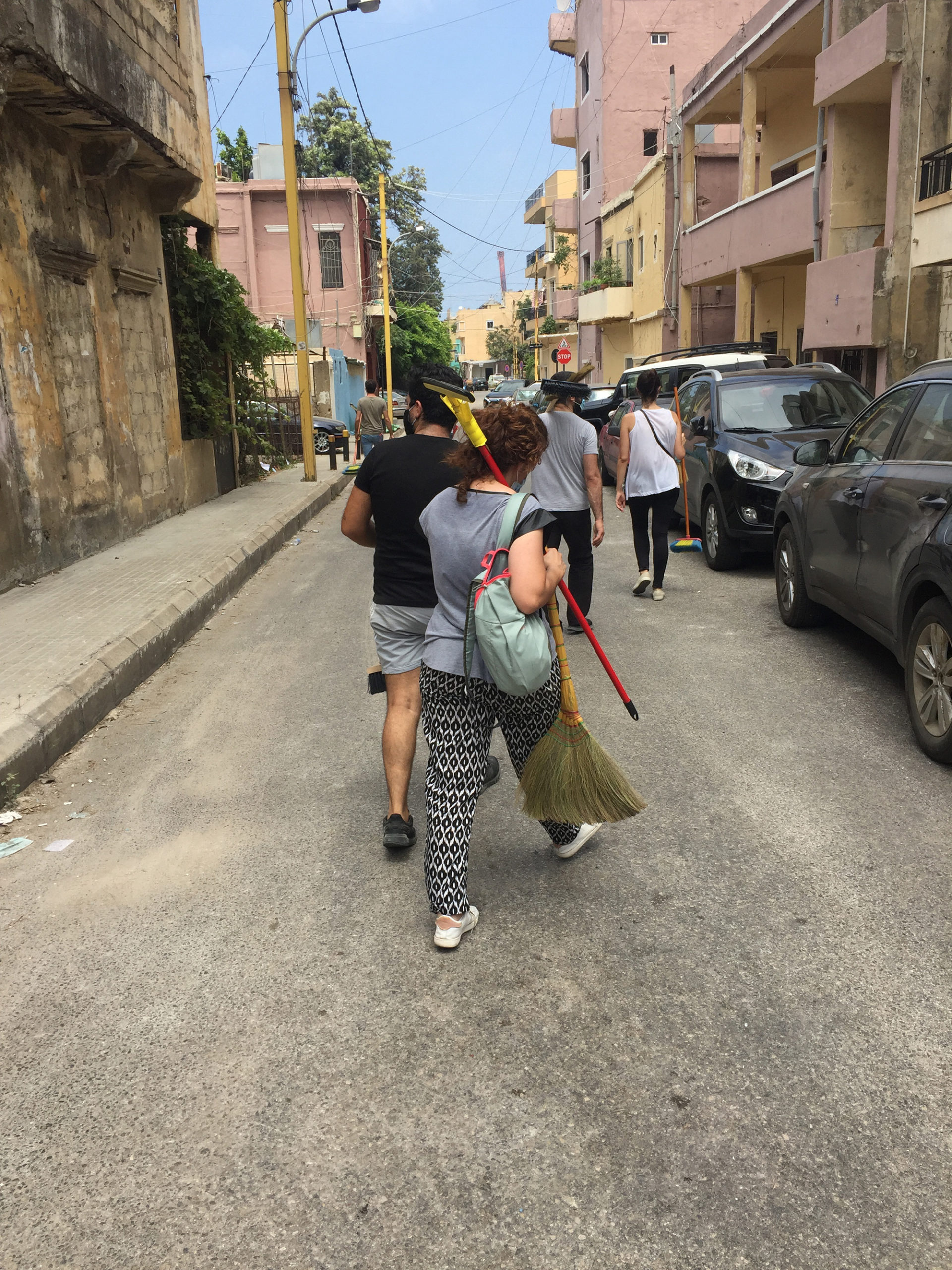
Within hours of the explosion, scores of mostly young people descended on the affected areas, sweeping debris, clearing flats and helping residents and businesses. (Photo: Nathalie Rosa Bucher)
All around the most affected neighbourhoods people, in less than 24 hours, were already clearing the streets from glass. There was glass everywhere. The sound of broken glass being swept up will forever remain etched in my ears…
Beirut is a loud city. Whenever I record WhatsApp messages to friends abroad they’d comment how incredibly loud it is. It was muted that day. Merely the sound of sweeping, debris, tears and dust in the air, everywhere.
The next day, Thursday, I did what everybody has been doing: helped. Within 48 hours, mobile stations and first aid tents had been set up and armadas of primarily young people had descended on the affected areas with brooms, shovels, buckets and an incredible spirit.
Together with about 10 others, I helped a friend who lost her apartment, to clear it out. Her flat was a few hundred metres from the port and her downstairs neighbour was killed. I refuse to think what would have happened to her, had she been home.
On Friday I found myself with a group of young scouts from Baskinta, a mountain village, in the neighbourhood of Karantina sweeping out homes. Seeing me dusty and with my broom when I headed home, a taxi driver refused to take money from me. “You help us, I help you.”
Every day the level of organisation got more sophisticated. I’m part of two WhatsApp groups, named “Beirut Rising” and “Rise Beirut”, with some 300 members. All sorts of messages keep pouring in, day and night. From a Sudani man missing, to someone looking for a hard mattress, to a map with shelters and homes offered across the country, to practical needs such as carpenters to fix doors. Every message I’ve seen has been answered within minutes. Every message!
On Saturday, four days after the tragedy, cleaning efforts resumed and a protest was announced on Martyr’s Square for 5pm. By then, French president Emmanuel Macron had jetted in to assess the damages and express his solidarity with the people of Lebanon. However, no disaster management unit or soldier had been deployed or was seen supporting the civil cleaning up efforts. There was no sign of government officials offering assistance.
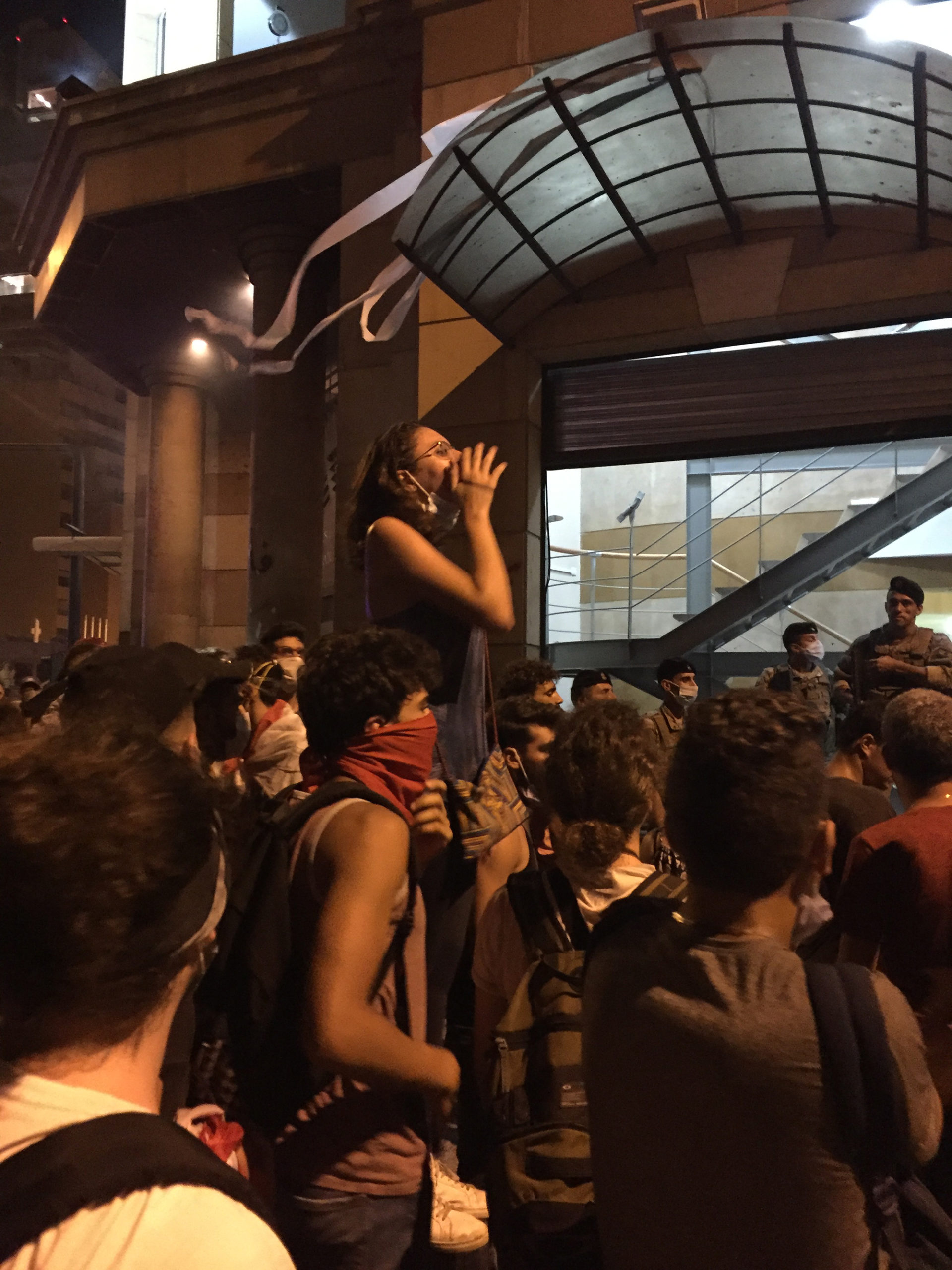
A well-known activist, this young woman’s brother has been killed by security forces during the ‘thawra’ (revolution) that started on 17 October 2019. (Photo: Nathalie Rosa Bucher)
That day, I went clearing rubble again with friends from Tripoli (city in north Lebanon). The majority of the young people in this group were Syrians, some from Homs, a city annihilated during the civil war. Palestinians have been coming in from the camps, Syrian medics, Bangladeshis, Ethiopian domestic workers and others, albeit all having been exposed to racial prejudice in their host country.
By late afternoon, masses of people, equipped with gloves and brooms and flags, many coming straight from clearing up the catastrophe, headed to Martyr’s Square. I had already seen on social media feeds of friends of mine that the sky was heavy with tear gas so besides the flag, I packed goggles and onions – they help against tear gas as I learned during the “thawra” (revolution) last October.
Seeing thousands of people filled with immeasurable grief, many having just buried loved ones, colleagues, neighbours or friends, having lost their homes and businesses and dreams, with thousands hospitalised with injuries and still dozens missing, being tear gassed for protesting was unbelievable. It unleashed a rage like never before.
For the five hours that I was on the square, the army shot (French manufactured) tear gas, and as it later turned out, rubber bullets and small pellets that nearly killed a number of protesters. Hospitals, already filled with 600 injured from the blast and Covid-19 cases, were further burdened with 300 injured protesters.
At night, a group of protesters had gathered in front of the Association of Banks in Lebanon. Some used their shovels to trash the place, as soldiers watched them, uneasily. A young woman activist whose brother was shot by the army during the revolution, led an angry, powerful chant.
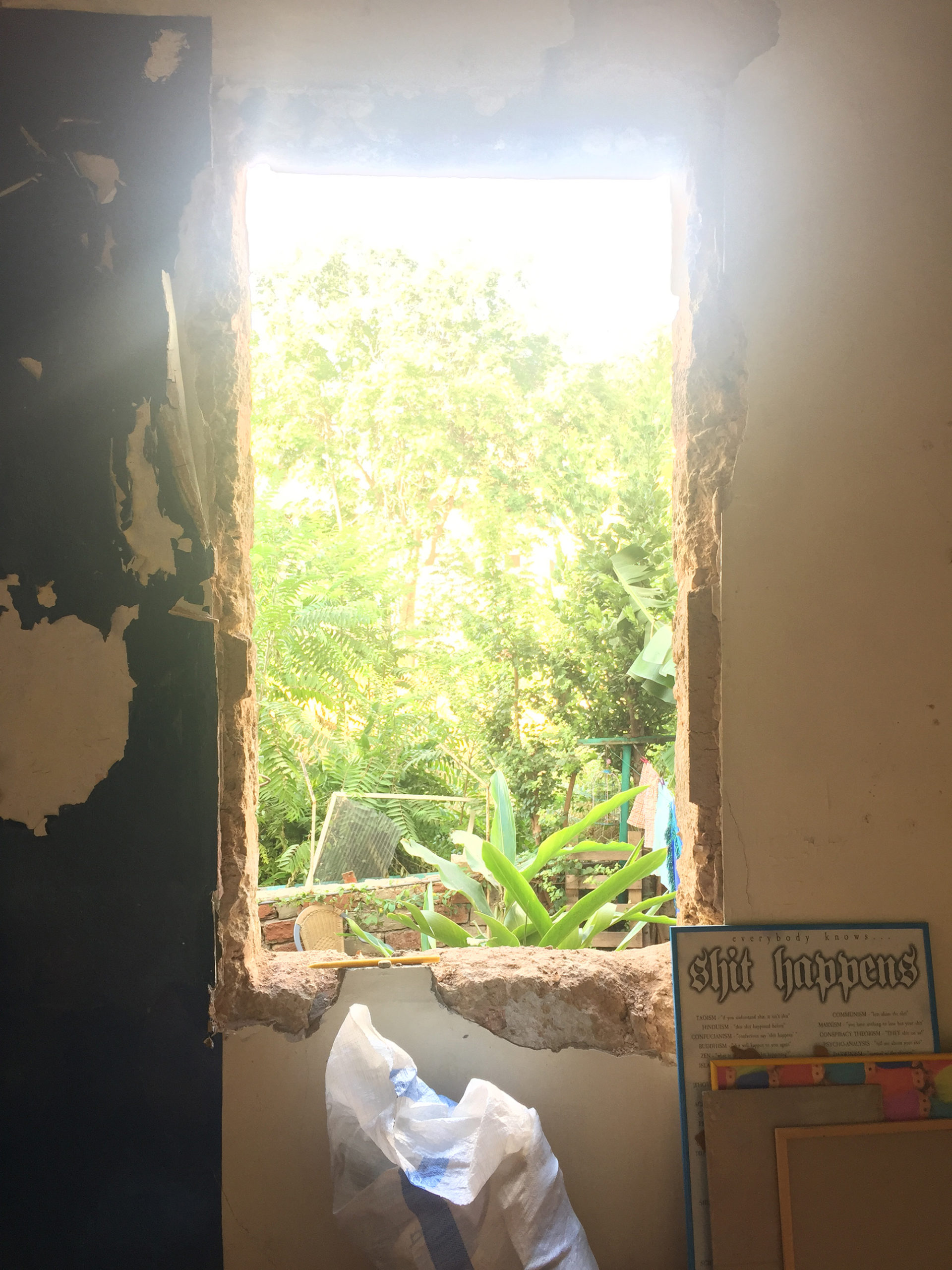
The remains of a friend’s family home, in which he grew up and his parents have lived for 40 years, including the years of the Lebanese civil war (1975-1990). (Photo: Nathalie Rosa Bucher)
One week on, I am emotionally overwhelmed by what I see and hear, the magnitude of the challenges ahead. The kindness, humanity and solidarity somehow still keep me hopeful.
I’ve witnessed the “garbage protests” in 2015, and the massive uprising, the beautiful “thawra” that swept through the country, starting on 17 October 2019, which caused the fall of the previous government. The slogan then and still now – is koulloun yaani koulloun (all means all).
That call for fundamental change is long overdue. Since late 2019, we have been living through economic collapse and hyperinflation that has seen the Lebanese Lira devalued by 80%, exacerbated by the Covid-19 pandemic. The government resigning is a first, small step akin to a lizard losing its tail.
In the words of writer and translator Lina Munzer: “Let’s be clear who they are, those responsible: every last grizzled warlord and their underachieving sons, nephews and sons-in-law who hold the highest seats of power. Every loyalist they have personally picked and manoeuvred into influential positions across every conceivable sector, public and private. Every minister and bureaucrat too self-interested or too craven to speak up. This mafia is what is broadly referred to in Lebanon as the ‘political class’; the ‘ruling elite’.’’ DM
Nathalie Rosa Bucher is a French-German archivist and researcher who before basing herself in Beirut, studied at UCT and worked as a journalist and cultural activist in Cape Town (1997-2012).
"Information pertaining to Covid-19, vaccines, how to control the spread of the virus and potential treatments is ever-changing. Under the South African Disaster Management Act Regulation 11(5)(c) it is prohibited to publish information through any medium with the intention to deceive people on government measures to address COVID-19. We are therefore disabling the comment section on this article in order to protect both the commenting member and ourselves from potential liability. Should you have additional information that you think we should know, please email [email protected]"




 Become an Insider
Become an Insider